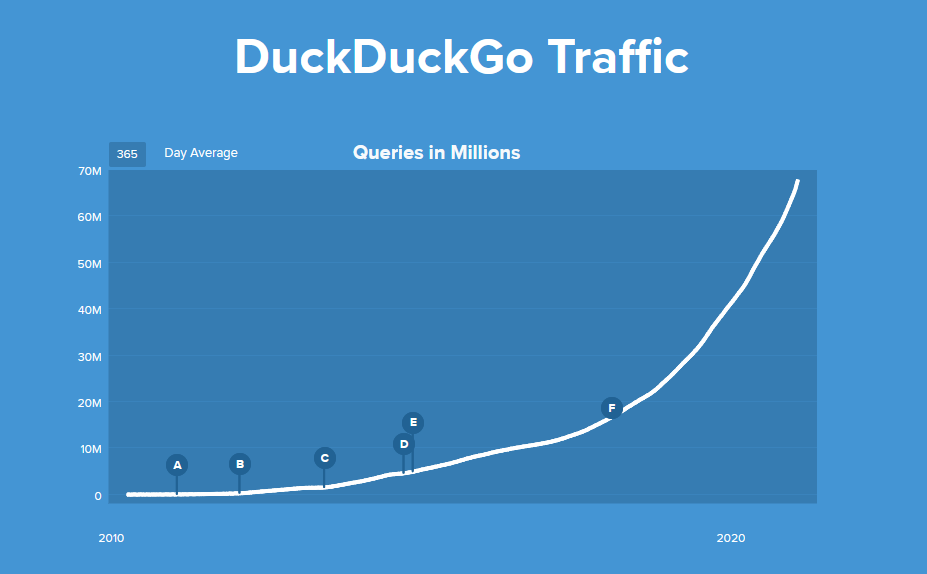I wanted to write a short issue of my Product Ideas newsletter.
But then I remembered this tweet, started thinking about how many amazing content producers don’t get the attention they deserve, end ended up writing a long battle cry to disrupt Google. https://twitter.com/coreyhainesco/status/1356020523084378113
But then I remembered this tweet, started thinking about how many amazing content producers don’t get the attention they deserve, end ended up writing a long battle cry to disrupt Google. https://twitter.com/coreyhainesco/status/1356020523084378113
Corey is certainly right and imho the problem is that most popularity algorithms are only good at amplifying what’s already popular and not at bringing attention to content that deserves more.
The problem permeates almost all big platforms.
The problem permeates almost all big platforms.
Nowadays Google's search results are dominated by big sites like Wikipedia and Forbes.
Google got sick of the cat and mouse games with black hat SEOs and decided to introduce an incredibly strong bias towards established brands.
Google got sick of the cat and mouse games with black hat SEOs and decided to introduce an incredibly strong bias towards established brands.
But since Google now favors strong brands so heavily, they can publish whatever they want, and it will still rank at the top.
So of course they started to churn out thousands of crappy articles so that they can dominate as many search terms as possible.
So of course they started to churn out thousands of crappy articles so that they can dominate as many search terms as possible.
In almost every niche, Google search results are dominated by just a handful of big players while smaller players have no chance, no matter how good their content is.
There is so much amazing stuff out there. It’s just that no one finds it.
There is so much amazing stuff out there. It’s just that no one finds it.
And unfortunately, it becomes a self-fulfilling prophecy. What’s the point of publishing amazing tutorials on your blog if no one is ever going to find them?
Google plays a major role in the death of the indie web.
Google plays a major role in the death of the indie web.
And I'm certainly not the only one who is dissatisfied with Google's results.
Many people add faux-query modifiers like “reddit” to their search results because otherwise the results are useless. (h/t @danielgross for this observation)
Many people add faux-query modifiers like “reddit” to their search results because otherwise the results are useless. (h/t @danielgross for this observation)
I genuinely believe that the time has come to disrupt Google.
Sure, DuckDuckGo is growing rapidly, but their USP is privacy not better search results. I mean, I just searched for “duckduckgo growth” on DuckDuckGo and the result I was looking for was nowhere to be found.
Sure, DuckDuckGo is growing rapidly, but their USP is privacy not better search results. I mean, I just searched for “duckduckgo growth” on DuckDuckGo and the result I was looking for was nowhere to be found.
Yes, I’m aware that this is an incredibly tough challenge. But “it always seems impossible until it's done“, right?
The toughest question is: how to start?
The toughest question is: how to start?
One of my pet peeves and a great problem to start with is that finding understandable explanation of scientific topics is still incredibly hard.
Google always shows Wikipedia at the top even though understandable explanations are hardly ever found there.
Google always shows Wikipedia at the top even though understandable explanations are hardly ever found there.
So it would be amazing to find a way to classify explanations using terms like “beginner”, “expert”, “visual”, “rigorous”, “friendly” so that users can always find an explanation that matches their personal preferences and skill level.
I would start by using the amazing arXiv API to classify freely available papers and then built up from there towards the wild wild web. https://arxiv.org/help/api/
An alternative would be to start with product reviews since this is a niche where a lot of money is being made.
Manually it’s often easy to distinguish between genuine reviews and fake reviews. So can you find a way to do it algorithmically?
Manually it’s often easy to distinguish between genuine reviews and fake reviews. So can you find a way to do it algorithmically?
Just for clarity, this is what I mean by fake reviews.
They clearly never touched any of the products they're writing about. https://www.forbes.com/sites/forbes-personal-shopper/2020/02/12/5-best-headphones-for-music-of-2020/
They clearly never touched any of the products they're writing about. https://www.forbes.com/sites/forbes-personal-shopper/2020/02/12/5-best-headphones-for-music-of-2020/
Here's my full write-up, also featuring:
- fixing Goodreads recommendations
- selling Clubhouse invites
- How It Actually Works by @TrevMcKendrick https://productideas.substack.com/p/disrupting-google-selling-clubhouse
- fixing Goodreads recommendations
- selling Clubhouse invites
- How It Actually Works by @TrevMcKendrick https://productideas.substack.com/p/disrupting-google-selling-clubhouse

 Read on Twitter
Read on Twitter



